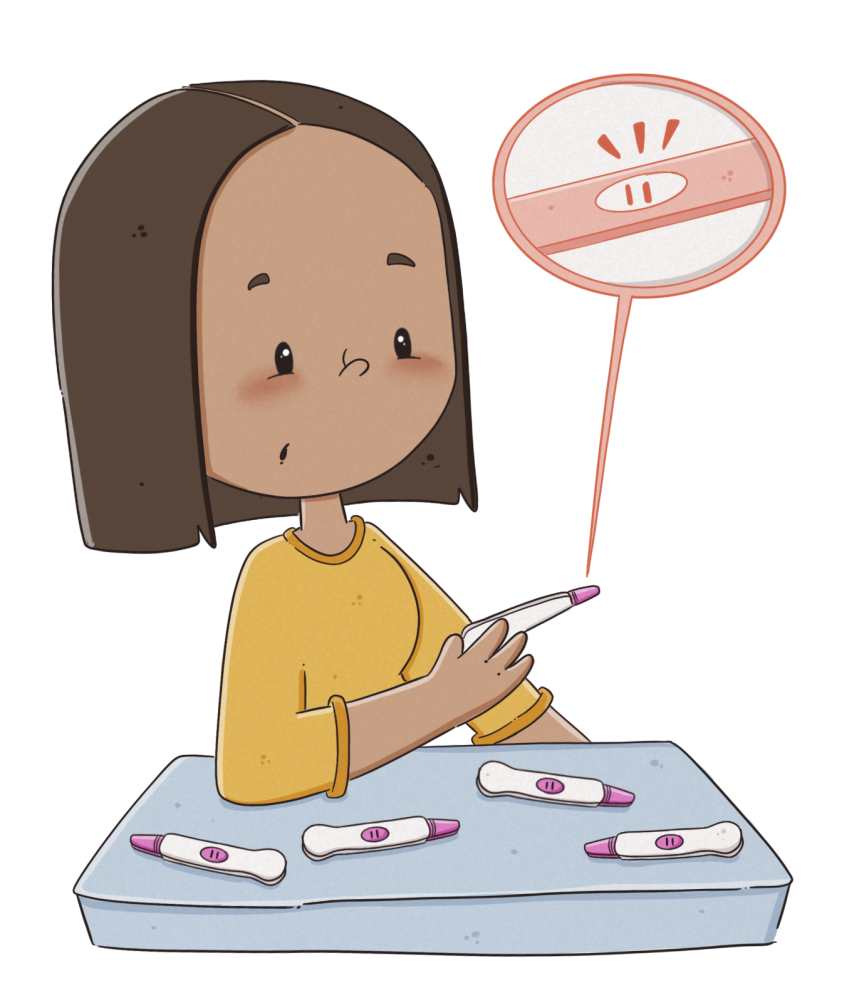Services Offered
Perinatal Psychotherapy and Perinatal Assistance

The birth of a baby involves a process that begins before birth and continues into the following years. Prevention of psychological disorders is very important at this stage. For this, perinatal psychology is one of the best tools to walk along this process.
Perinatal Psychotherapy is the psychological support for those who want to get pregnant, have already become pregnant or have just had a child. It is an area of psychology specialized in the psychological care of women or couples both in the phase before pregnancy, as well as during pregnancy, preparing for childbirth and the extended postpartum period.
This type of therapy provides a space for reflection in which parents can better understand the countless changes that occur in each of these phases, expose their expectations, fantasies, fears and anxieties, give a new meaning to their experiences and, thus, cope better. with the new reality and alleviate any suffering.
Perinatal Psychology is the area of study of human development that focuses on the PSYCHOLOGICAL PHENOMENA involved around BIRTH.
This is an area of specialization in psychology that also covers the phenomena of PARENTING such as parental educational practices, mother/father/baby relationship, attachment, adoption, infertility, assisted reproduction, miscarriages, maternal mourning, child development, family planning, where the focus is perinatality and the transition to parenthood.
The arrival of a child brings an unknown universe, full of joys and achievements, but also of feelings of incapacity, anguish and impotence. In this scenario, the support of a perinatal psychologist is relevant.
Pregnancy and postpartum are moments of transition, of changing identities and roles, of physical, psychological and affective transformations. Psychological support provides a space for parents to understand this parenting process.
Excessive anxiety can compromise peace of mind during pregnancy and affect the quality of the bond with the baby and other family members. Psychological support allows pregnant women to deal with their expectations and fears and can therefore contribute to a balanced pregnancy and healthy emotional bonds.
Perinatal psychology can help women/couples understand whether or not their desire to have a child, when to get pregnant and the possible consequences of this choice.
In building a new family:
It can facilitate the understanding of the new family dynamics with the arrival of the baby and help the couple in the transition of roles: from children to parents. The woman goes from daughter to mother, the man from son to father, the couple becomes a triad.
In the relationship with the baby:
Perinatal psychology can help parents form and maintain a bond with their baby. It also provides support so that women can deal with the baby's demands and their own needs in a balanced way.
When breastfeeding:
When breastfeeding is desired and possible, it becomes an opportunity to deepen the mother's contact and interaction with her child. Perinatal psychology can help the mother deal with emotional issues that can interfere with this process. More than that, it can help the mother to create a quality bond with the baby regardless of whether she is breastfeeding or not.
In specific cases:
Perinatal psychology offers psychological support in high-risk pregnancies, cases of infertility and fertility treatments, depression during pregnancy, baby blues and postpartum depression. It also helps in the elaboration of possible perinatal losses.
📍 The number of sessions and their frequency is agreed between the mother or couple and the psychologist at the initial screening consultation. The duration of each session is 50 minutes.

Perinatal Assistance
Specific psychological assistance to women, couples and families affected by perinatal issues, that is, around birth.
Here we aid expectant mothers, pregnant women, postpartum women, and new mothers in the processes that go through perinatal life. We offer punctual assistance when necessary to walk together in the processes involving the arrival of the baby and mother and their possible motherhood.
Perinatal psychology is a transdisciplinary field of activity. It is constantly in dialogue with gynaecology-obstetrics, psychiatry, neonatology, paediatrics, physiotherapy, and several other professionals in the field of maternal, child and perinatal care, labour and birth.
This field of psychology comprises the encounter between three elements in human birth and growth: the birth of the baby, but also the birth of the mother and the father. Thus, allowing us to understand and assist more broadly the vulnerability, deconstructions, constructions and reconstructions that exist in the pregnancy-puerperal cycle, not as pathological (in the field of illnesses) but as important manifestations for the development of individuals in the family that is formed and the bonds and ties that will be present.
📍 The number of sessions and their frequency is free for those looking for this help, here we will work on routine and specific demands that do not fit the profile to start psychotherapy but rather brief assistance at this stage for the woman or couple.
The duration of each session is 50 minutes.
Perinatal Psychotherapy and Perinatal Assistance

The birth of a baby involves a process that begins before birth and continues into the following years. Prevention of psychological disorders is very important at this stage. For this, perinatal psychology is one of the best tools to walk along this process.
Perinatal Psychotherapy is the psychological support for those who want to get pregnant, have already become pregnant or have just had a child. It is an area of psychology specialized in the psychological care of women or couples both in the phase before pregnancy, as well as during pregnancy, preparing for childbirth and the extended postpartum period.
This type of therapy provides a space for reflection in which parents can better understand the countless changes that occur in each of these phases, expose their expectations, fantasies, fears and anxieties, give a new meaning to their experiences and, thus, cope better. with the new reality and alleviate any suffering.
Perinatal Psychology is the area of study of human development that focuses on the PSYCHOLOGICAL PHENOMENA involved around BIRTH.
This is an area of specialization in psychology that also covers the phenomena of PARENTING such as parental educational practices, mother/father/baby relationship, attachment, adoption, infertility, assisted reproduction, miscarriages, maternal mourning, child development, family planning, where the focus is perinatality and the transition to parenthood.
The arrival of a child brings an unknown universe, full of joys and achievements, but also of feelings of incapacity, anguish and impotence. In this scenario, the support of a perinatal psychologist is relevant.
Pregnancy and postpartum are moments of transition, of changing identities and roles, of physical, psychological and affective transformations. Psychological support provides a space for parents to understand this parenting process.
Excessive anxiety can compromise peace of mind during pregnancy and affect the quality of the bond with the baby and other family members. Psychological support allows pregnant women to deal with their expectations and fears and can therefore contribute to a balanced pregnancy and healthy emotional bonds.
Perinatal psychology can help women/couples understand whether or not their desire to have a child, when to get pregnant and the possible consequences of this choice.
In building a new family:
It can facilitate the understanding of the new family dynamics with the arrival of the baby and help the couple in the transition of roles: from children to parents. The woman goes from daughter to mother, the man from son to father, the couple becomes a triad.
In the relationship with the baby:
Perinatal psychology can help parents form and maintain a bond with their baby. It also provides support so that women can deal with the baby's demands and their own needs in a balanced way.
When breastfeeding:
When breastfeeding is desired and possible, it becomes an opportunity to deepen the mother's contact and interaction with her child. Perinatal psychology can help the mother deal with emotional issues that can interfere with this process. More than that, it can help the mother to create a quality bond with the baby regardless of whether she is breastfeeding or not.
In specific cases:
Perinatal psychology offers psychological support in high-risk pregnancies, cases of infertility and fertility treatments, depression during pregnancy, baby blues and postpartum depression. It also helps in the elaboration of possible perinatal losses.
📍 The number of sessions and their frequency is agreed between the mother or couple and the psychologist at the initial screening consultation. The duration of each session is 50 minutes.

Perinatal Assistance
Specific psychological assistance to women, couples and families affected by perinatal issues, that is, around birth.
Here we aid expectant mothers, pregnant women, postpartum women, and new mothers in the processes that go through perinatal life. We offer punctual assistance when necessary to walk together in the processes involving the arrival of the baby and mother and their possible motherhood.
Perinatal psychology is a transdisciplinary field of activity. It is constantly in dialogue with gynaecology-obstetrics, psychiatry, neonatology, paediatrics, physiotherapy, and several other professionals in the field of maternal, child and perinatal care, labour and birth.
This field of psychology comprises the encounter between three elements in human birth and growth: the birth of the baby, but also the birth of the mother and the father. Thus, allowing us to understand and assist more broadly the vulnerability, deconstructions, constructions and reconstructions that exist in the pregnancy-puerperal cycle, not as pathological (in the field of illnesses) but as important manifestations for the development of individuals in the family that is formed and the bonds and ties that will be present.
📍 The number of sessions and their frequency is free for those looking for this help, here we will work on routine and specific demands that do not fit the profile to start psychotherapy but rather brief assistance at this stage for the woman or couple.
The duration of each session is 50 minutes.
|
Follow us on Instagram |
 |



